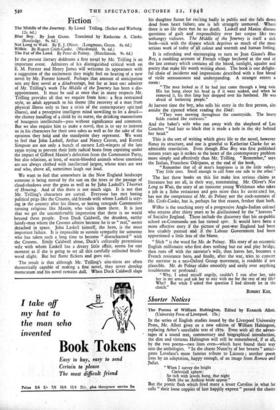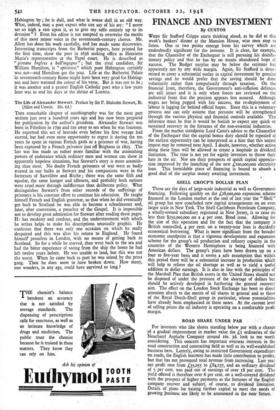Shorter Notices
The - Poems of William Habington. Edited by Kenneth Allott. (University Press of Liverpool. 15s.)
IN the- series of English studies issued by the Liverpool University Press, Mr. Allott gives us a new edition of William Habington, replacing Arber's unreliable text of 1870. Even with all the advan- ' tages of a sound text, commentary and biographical introduction, the dim and virtuous Habington will still be remembered, if at all, by the two poems—two lines even—which have found their way into the anthologies. " In the chaste Nunn'ry of her breasts " antici- pates Lovelace's more famous tribute to Lucasta ; another poem lives by an adaptation, happy enough, of an image from Romeo and "When I survey the bright
Coelestiall sphere : So rich with jewels hung, that night Doth like an Aethiop bride appear."
But the poetic flash which fired many a lesser Caroline in what he calls " their loose coppies of lust happily exprest " passed the chaste Habington by ; he is dull, and what is worse dull in an old way. What, indeed, may. a poet expect who can say of his art: " I never set so high a rate upon it, as to give my selfe entirely up to its devotion" ? Even his editor is not tempted to overwrite the merits of this most minor voice in the seventeenth-century chorus. Mr. Allott has done his work carefully, and has made some discoveries. Interesting transcripts from the Barberini papers, here printed for the first time, show the poet in 1636 seeking office as Henrietta Maria's representative at the Papal court. He is described as " giovane Inglese e bell'ingegno"; but the rival candidate, Sir William Hamilton, is "spiritoso," which poor Habington certainly was not—and Hamilton got the post. Life at the Barberini Palace in seventeenth-century Rome might have been very good for Habing- ton and have warmed the colour of his verse. But it was not to be ; it was another and a greater English Catholic poet who a few years later was to end his days at the shrine of Loretto.



































 Previous page
Previous page